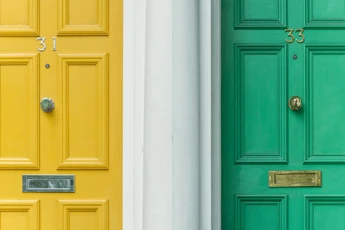Buying your first home is a significant milestone in life, and for many, an accomplishment that they aspire to achieve. However, knowing when the right time to make this major financial commitment can be tricky.
With fluctuating property markets, changing interest rates, and personal financial considerations, it's crucial to get your timing right, as this will allow you to make an informed decision. In this article, we'll explore the key factors to consider when determining whether it's the right time to buy your first home.
Financial stability and affordability
One of the most critical factors to consider before buying your first home is your financial stability and affordability. Evaluate your current financial situation, including your income, expenses, debts, and savings. Asking yourself the following questions will give you a good idea of where you stand financially, and, therefore, what position you’re in to buy your first home:
-
Do I have a stable source of income?
-
Can I comfortably manage monthly mortgage payments along with other expenses?
-
Do I have enough savings for a deposit and associated fees for conveyancers and surveyors?
-
Do I have any outstanding debts? If so, are these at a manageable level?
A strong financial foundation is crucial when taking on a mortgage, so make sure your finances are in order before taking the plunge. You’ll also need to calculate the monthly expenses associated with homeownership in addition to your monthly mortgage payments, such as insurance, utilities, and maintenance costs. Ensure that these expenses are manageable within your budget and won't strain your finances.
Understanding the property market
The property market in the UK can be volatile, and prices can vary significantly between regions. As a result, it’s essential to research the market in your desired location thoroughly. Keep an eye on trends in property prices, interest rates, and government policies that may affect the market. If you notice that the housing market is offering stable or decreasing prices, it might be a good time to consider buying.
Stable employment
Stable employment is another crucial factor when considering buying your first home. Lenders often prefer borrowers with a consistent employment history, as it demonstrates your ability to make mortgage payments. Therefore, if you've recently changed jobs or have a history of job-hopping, it may be wise to wait until you've established a stable work record before starting your homebuying journey.
Saving for a deposit
When it comes to buying a home, you’ll need a deposit. The minimum for this is 5%, but the bigger, the better. A good amount to aim for is around 20% of the property’s value. However, the bigger the deposit you amass, the better your chances of securing a more competitive mortgage deal with lower interest rates.
Long-term goals
When deciding to buy your first home, consider your long-term goals. Are you planning to stay in the same area for several years? Do you anticipate any major life changes, such as starting a family or changing careers? Buying a home is a long-term commitment, so make sure that your plans align with your housing choice.
Getting a mortgage in principle
Getting pre-approved for a mortgage is a smart step before house hunting. A mortgage in principle involves a lender assessing your financial situation and determining the amount they are willing to lend you. This can give you a realistic budget and help you narrow down your search to homes within your price range.
Buying your first home is an exciting but significant decision that requires careful consideration. Remember that timing is everything, and it's essential to make a decision that aligns with your current financial situation and future goals. However, with careful planning and a solid financial foundation, you can confidently embark on your journey to becoming a homeowner.
If you’re ready to take your first step in your homebuying journey, get in touch with us today. Our team of expert advisers are on hand to support you every step of the way, from your initial application all the way through to completion.
Important information
Your home may be repossessed if you do not keep up repayments on your mortgage.
There may be a fee for mortgage advice. The actual amount you pay will depend on your circumstances. The fee is up to 1% but a typical fee is 0.3% of the amount borrowed.
Related Articles
Mortgage jargon buster
Equity, base rates, and conveyancers. What do they all have in common? They’re all mortgage jargon. Let’s break them down into more manageable chunks…
< 50 views | 1 year ago
How to secure your new home
It's important to make your home's security a priority and not take it for granted.
< 60 views | 6 months ago
Negotiating house prices: your key guide
Negotiating on house prices is an art. Make sure you know the drill by reading our guide to negotiating house prices.
< 100 views | 1 year ago
No posts currently available




